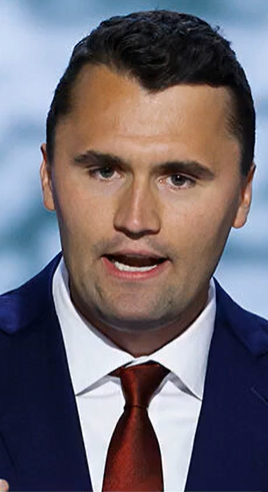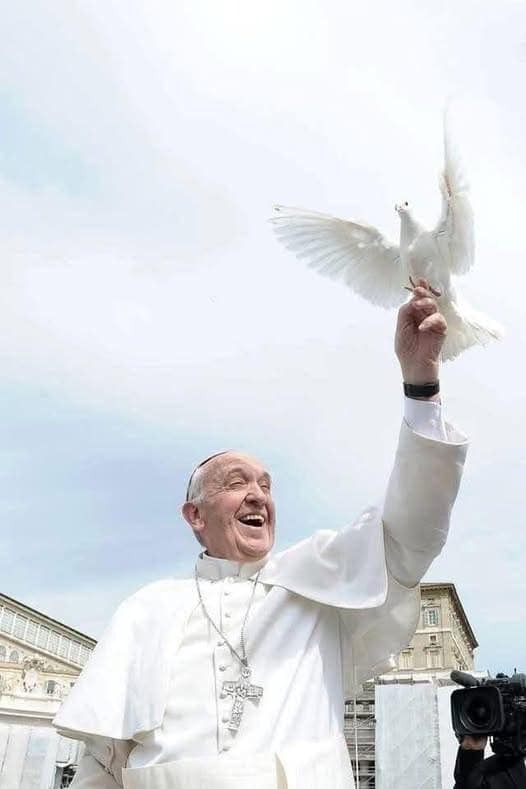On September 10, 2025, the United States was shaken by news that Charlie Kirk, co-founder of Turning Point USA and one of the most recognizable conservative commentators of his generation, had lost his life during a public appearance at Utah Valley University (UVU) in Orem, Utah. The incident immediately became a point of national focus, not only because of Kirk’s influence on the American political stage but also because it raised pressing questions about the state of political discourse, public safety, and the role of the media during times of national crisis.
While the facts of the case continue to unfold through ongoing investigations, one thing is clear: this event has had a profound impact on communities across the country. Leaders from different sides of the political spectrum have weighed in, media organizations have faced heightened scrutiny, and citizens have engaged in broader conversations about unity, civility, and responsibility in public life.
This article explores the life and influence of Charlie Kirk, details the incident as reported by authorities, highlights the responses from leaders and the media, and analyzes the wider societal implications.
Charlie Kirk: A Rising Voice in Conservative Politics
Charlie Kirk was more than a political commentator; he was a movement builder. Born in 1993 in Illinois, he became politically active at a young age, founding Turning Point USA (TPUSA) in 2012 when he was only 18 years old. His vision was to mobilize and empower young conservatives on college campuses, countering what he often described as a left-leaning dominance in academia.
Over the next decade, TPUSA grew into one of the most visible youth organizations in American politics. The group hosted conferences, organized campus chapters, and cultivated a network of young conservatives who went on to play roles in campaigns, policy debates, and grassroots organizing.
Kirk himself became a sought-after speaker, frequently appearing on television, radio, and podcasts. He authored books on American values, free markets, and limited government, and he maintained an active presence on social media, where he was followed by millions. His ability to connect with young audiences made him both influential and polarizing—a figure admired by supporters and criticized by opponents.
By 2025, Kirk was regarded as one of the most prominent young conservative leaders in the country, often mentioned alongside other influential voices shaping the future of the movement.
The Utah Valley University Event and Its Aftermath
On the evening of September 10, Kirk appeared at Utah Valley University for a public Q&A session, part of a speaking tour aimed at engaging college students in conversations about freedom, constitutional values, and civic participation.
Tragically, the event did not end as planned. Authorities later confirmed that Kirk had been the victim of a deliberate act of violence. A 22-year-old suspect, Tyler Robinson, was apprehended and taken into custody shortly after the incident. Officials stressed that there was no ongoing threat to the public, and law enforcement agencies began a joint investigation to establish motive and gather evidence.
The news quickly spread across media outlets, social networks, and communities nationwide. For many, it felt like a moment that transcended partisan politics—a reminder of the human cost of division and the urgent need for dialogue about how to conduct civic debates without resorting to hostility or harm.
A Nation Reacts: Condolences and Calls for Unity
The response from political leaders, commentators, and the public was immediate and wide-ranging.
- Former President Donald Trump released a statement expressing sorrow for Kirk’s family and urging Americans to resist hatred with unity.
- Members of Congress, both Republican and Democrat, paused to offer condolences, reflecting that despite sharp policy disagreements, the value of human life must remain above political conflict.
- Grassroots supporters of Kirk and Turning Point USA organized vigils across college campuses, remembering his work in mobilizing students and inspiring a generation to become more politically active.
Ordinary citizens also expressed shock and sadness, with social media becoming a space where messages of sympathy poured in. Hashtags in remembrance of Kirk trended for days, showing the reach of his influence and the depth of the loss felt by many.
The Media’s Role and the MSNBC Controversy
Media organizations played a central role in covering the incident, and with that responsibility came heightened scrutiny. While most coverage was solemn and respectful, controversy arose when MSNBC analyst Matthew Dowd made remarks during live reporting that many viewers considered inappropriate and insensitive given the national mood.
The backlash was swift. Viewers took to social media to criticize the comments, and within days, MSNBC confirmed that Dowd was dismissed from his role. The network released a statement acknowledging the misstep, emphasizing the importance of compassion and professionalism when reporting on tragedies.
This episode sparked debate about the responsibility of journalists and commentators during sensitive events. Should media coverage focus solely on facts and empathy? How should networks balance analysis with respect for grieving families and communities? These questions remain vital, particularly in an era where live commentary often unfolds in real-time and mistakes can spread widely within seconds.
The Law Enforcement Investigation
As of now, the investigation into the Utah Valley University incident remains active. Authorities from local police departments, the Utah state investigative bureau, and the FBI are cooperating to piece together the circumstances.
Investigators are reviewing:
- Physical evidence from the site of the incident.
- Digital footprints of the suspect, including social media activity and communications.
- Witness accounts from attendees who were present at the Q&A session.
Officials have consistently urged the public not to engage in speculation and instead wait for confirmed updates. Their focus is on ensuring that facts—not rumors—guide the national understanding of what happened.
This measured approach highlights the challenges of modern law enforcement in high-profile cases, where misinformation can spread rapidly online and shape public perception before official findings are released.
Political Violence and Public Safety: A Broader Conversation
The tragedy has also reignited national conversations about political violence and the importance of ensuring safety in public spaces.
Over the past decade, there has been growing concern about rising hostility in political discourse. Public events—once viewed as opportunities for dialogue—are increasingly being assessed through the lens of security. Universities, town halls, and rallies now often require heightened protective measures to safeguard both speakers and attendees.
Experts in civic engagement argue that political violence undermines democracy at its core. Free speech and open dialogue can only thrive in environments where people feel safe to share ideas without fear of retaliation. The loss of a prominent figure like Charlie Kirk underscores the stakes of protecting these values.
At the same time, community leaders are urging citizens to reject narratives of division and instead focus on finding common ground. While policy differences are inevitable in a diverse society, the manner in which disagreements are expressed can determine whether those differences lead to productive debate or destructive conflict.
Turning Point USA: The Movement and Its Future
Another dimension of this story is the future of Turning Point USA. The organization, which Kirk co-founded and led for over a decade, has been a central force in shaping youth involvement in conservative politics. With Kirk’s passing, questions arise about leadership succession, organizational direction, and the preservation of his legacy.
TPUSA has issued a statement honoring Kirk’s contributions, pledging to continue its mission of empowering students and promoting constitutional principles. Senior figures within the organization are expected to step into greater leadership roles, though the absence of Kirk—who was not only a leader but also the face of the movement—will undoubtedly be felt.
Observers note that the future of TPUSA may depend on whether it can maintain momentum while also adapting to new realities. The organization’s ability to inspire young people will likely remain a critical factor in its long-term sustainability.
The Responsibilities of Public Figures
Another major theme to emerge from this tragedy is the responsibility that comes with public visibility. Charlie Kirk was not only a commentator but also a symbol of a larger political movement. With prominence comes scrutiny, and with influence comes both admiration and criticism.
The reactions following his death highlight how public figures—regardless of political alignment—can become flashpoints in broader societal debates. This reality underscores the importance of fostering an environment where ideas can be contested without targeting individuals.
Scholars of communication emphasize that leaders in politics, media, and culture must work consciously to model respectful disagreement. By doing so, they can help set a tone for public discourse that prioritizes constructive engagement over antagonism.
A Moment for Reflection
As the United States continues to process the loss of Charlie Kirk, many see this as a moment for reflection. Beyond partisan lines, the incident has highlighted the fragility of public trust, the urgency of maintaining civil discourse, and the need for shared commitments to safety and respect.
In communities across the country, conversations have begun—not just about Kirk’s legacy, but about how Americans can prevent similar tragedies in the future. Schools, civic organizations, and media outlets all have roles to play in building a culture of dialogue rather than division.
The challenge is not simple, but the stakes are high. Political violence, even when directed at one individual, threatens the broader fabric of democracy. Preventing it requires vigilance, empathy, and a commitment to ensuring that ideas, not individuals, are the focus of debate.
Conclusion: Legacy, Unity, and the Path Forward
Charlie Kirk’s life and career were defined by his passion for shaping political dialogue, mobilizing young people, and advocating for his vision of American values. His untimely passing at Utah Valley University is a tragedy that has resonated deeply across the nation.
As investigations continue and facts come to light, the focus remains on honoring his legacy, supporting his family and community, and drawing lessons that can guide the country forward. Leaders, citizens, and media professionals alike are being challenged to reflect on their roles in fostering a healthier civic environment.
While political differences will always exist, the tragedy of September 10, 2025, is a stark reminder that unity, empathy, and responsibility must stand at the center of public life. The legacy of Charlie Kirk may well be measured not only by the work he accomplished but also by the conversations his loss has inspired—a call to ensure that America’s democratic future is rooted in respect, safety, and constructive engagement.



